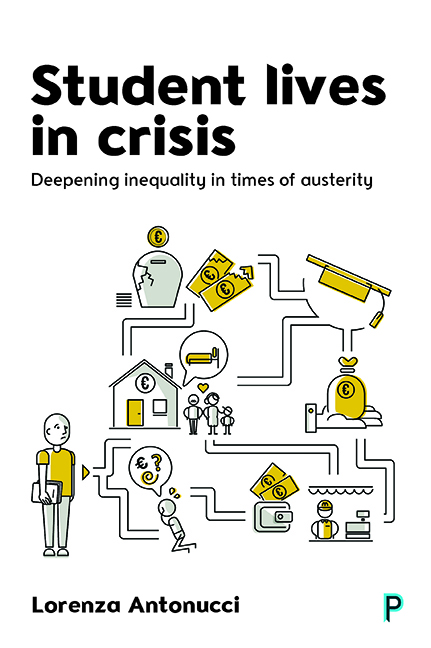Book contents
- Frontmatter
- Dedication
- Contents
- List of tables and figures
- List of acronyms
- Note on author
- Preface: A post-Brexit preface
- Acknowledgements
- Introduction: Young people’s lives at university in crisis
- Part 1 University for all? How higher education shapes inequality among young people
- Part 2 Exploring the inequality of university lives in England, Italy and Sweden
- Part 3 The ‘eternal transition’: young adults and semi-dependence in university
- Conclusion: Addressing growing inequality among young people in university
- Notes
- Annex
- Index
Part 3 - The ‘eternal transition’: young adults and semi-dependence in university
Published online by Cambridge University Press: 05 April 2022
- Frontmatter
- Dedication
- Contents
- List of tables and figures
- List of acronyms
- Note on author
- Preface: A post-Brexit preface
- Acknowledgements
- Introduction: Young people’s lives at university in crisis
- Part 1 University for all? How higher education shapes inequality among young people
- Part 2 Exploring the inequality of university lives in England, Italy and Sweden
- Part 3 The ‘eternal transition’: young adults and semi-dependence in university
- Conclusion: Addressing growing inequality among young people in university
- Notes
- Annex
- Index
Summary
Having illustrated the five profiles of young people's experience of university, this next part of the book aims to clarify the function of the ‘welfare mixes’ in mitigating against, or contributing to, the contemporary social risks and uncertainties facing young people in university. This refers to the combinations of the three sources of welfare – the family, the labour market and the state. These mixes can be understood essentially as forms of protection against social risks: young people use such sources to protect themselves from the diffused social risks that characterise their transition to adulthood. In this part I want to clarify the specific function of each source of welfare in the young people's experiences in university.
While the availability of these mixes depends ultimately on individual conditions, there are some cross-national tendencies, in particular, in terms of the greater significance of certain sources of welfare in different national contexts. The comparison between England, Italy and Sweden permits an identification of the welfare mixes that differ the most – one that gives a higher role to family sources, such as that found in Italy; one that gives a higher importance to private sources of welfare, including both the family and the labour market, such as the one in England; and finally, one in which the state has a prominent role in functionally protecting young people during their university experience, as is the case in Sweden.
The young people are also confronted with an overall trend, identified in Part 1, which is making their transitions increasingly similar across the countries: the privatisation of social risks. This essentially means the progressive shift from using public sources to sustain their semidependency to using private sources. The trend towards using private sources of welfare has protracted the state of semi-dependency of young people. As explained in Part 1 this process started with a progressive shift towards individualised policies during the 1990s, and has been accelerated most recently by the trend of austerity. The shift towards a privatisation of social risks clashes with the reality of a declining availability of sources from the family and also the declining capacity of labour market sources to sustain young people's lives and their transition to independence.
- Type
- Chapter
- Information
- Student Lives in CrisisDeepening Inequality in Times of Austerity, pp. 117 - 118Publisher: Bristol University PressPrint publication year: 2016



